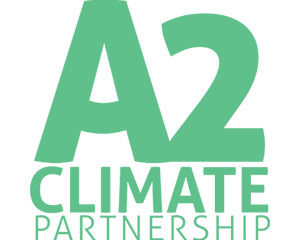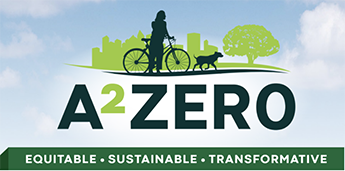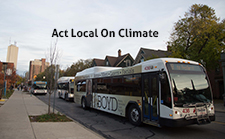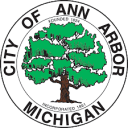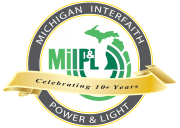The Ann Arbor Climate Partnership
About
The Ann Arbor Climate Partnership (A2CP) is a coalition of organizations and people working to solve the climate crisis in our community and throughout the world. We believe that every community must take immediate actions to rapidly phase out fossil fuels, and to protect their most vulnerable people from the ravages of climate change.
We were founded in 2014 after the City of Ann Arbor adopted one of the country’s first municipal climate action plans, a bold framework to reduce the community’s climate emissions 90% by 2050. Since then, the City has expanded its transit service by 43%; committed itself to operating all of its facilities on 100% renewable energy by 2030; and created an 8-year $880,000/year fund to begin implementing the climate plan.
Our Mission
The mission of the Ann Arbor Climate Partnership is to engage and guide the larger Ann Arbor community (residents, neighborhoods, businesses, nonprofits, local governments, educational institutions, etc.) to achieve the goals of the Ann Arbor Climate Action Plan (CAP) and to strengthen partnerships with the University of Michigan and regional stakeholders so that together we mitigate climate change, adapt to its impacts and ensure both economic vitality and social justice.
We carry out this work through advocacy, communication, education, advice and technical support. We also provide a platform for collaboration and a community of practice that creates a network of advocates, technical experts, program staff, and others to share information, best practices, inspiration, and creativity.
Leadership
The Climate Partnership is guided by a Working Group of non-governmental organizations and municipal and institutional participants. The government, university, and institutional participants in the Working Group provide information to the coalition, but have no role in its decisions. The Ecology Center serves as the convenor and host organization for the coalition. Any individual, business, or organization can sign up as a member or “partner” to support the A2CP mission. These are the participants in the Working Group as of September 2019:
NGO Partners
A2 Climate Mobilization
Ann Arbor Area Elders Climate Action
Ann Arbor 2030 District
Citizens Climate Lobby, Washtenaw Chapter
Climate Reality Project, Washtenaw Chapter
Ecology Center
First Unitarian Universalist Climate Action
Huron River Watershed Council
Interfaith Council for Peace and Justice, Climate Task Force
Michigan Interfaith Power & Light
National Wildlife Federation, Great Lakes Office
Sierra Club, Huron Valley Group
Solar Faithful
Sunrise Movement Ann Arbor
Voices for Carbon Neutrality
Washtenaw Bicycling and Walking Coalition
Government, University, and Institutional Participants (ex-officio)
Ann Arbor Area Transportation Authority
City of Ann Arbor Office of Innovation and Sustainability
City of Ann Arbor Environmental Commission
City of Ann Arbor Energy Commission
UM Energy Institute
UM Office of Sustainability
Rooftop Solar Panels
Energy & Buildings
Higher performance buildings: increase energy efficiency in new and existing buildings within our community. Eighty percent of Ann Arbor’s buildings were built before 1976, so driving retrofits and improvements is critical.
Energy Source: facilitate the transition from centralized, high-carbon energy sources to low- or no-carbon energy, such as wind, solar, and geothermal.
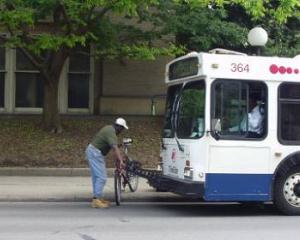
Bike Racks on A2 Buses
Land Use & Access
Integrated land use: encourage a pattern of compact diverse development that maintains a unique sense of place, preserves natural systems and strengthens neighborhoods, corridors, and downtown.
Transportation options: establish a physical and cultural environment that supports and encourages safe, comfortable, and efficient ways for pedestrians, bicyclists, and transit users to travel throughout the city and region.
Sustainable systems: plan for and manage constructed and natural infrastructure systems to meet the current and future needs of the community.

Farmers' Markets
Resource Management
Responsible resource use: effectively manage water resources, minimize water and wastewater treatment, curb consumption, and decrease landfill material by increasing reuse, recycling, and composting.
Local food: protect and enhance our local agriculture and aquaculture resources.
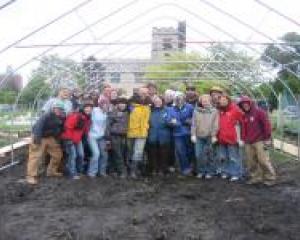
Community Events
Community Engagement
Engaged community: create an educated, aware, and active community to support Ann Arbor’s climate mitigation and adaptation efforts.
Green Roofs
Adaptation
Healthy ecosystems: preserve, protect, enhance, and restore our aquatic and terrestrial ecosystems.
Adaptation: Adapt or cope with the inevitable impacts of climate change regardless of future emissions reductions.
